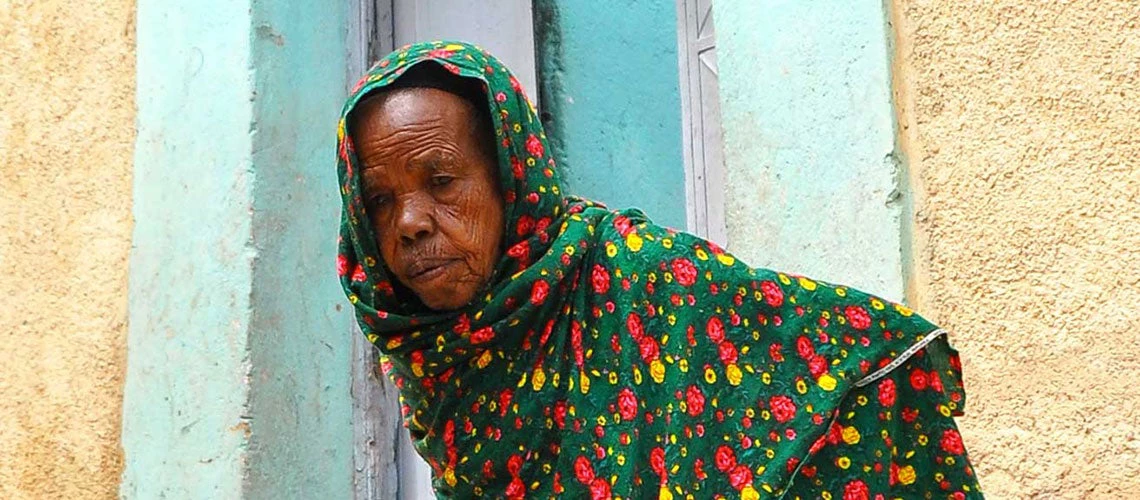 Old Harari Woman, Harar, Ethiopia. Photo: Rod Waddington/FlickR
Old Harari Woman, Harar, Ethiopia. Photo: Rod Waddington/FlickR
Getting older is a natural process, and one that I would like to go through. However, in the community where I am living, getting older is the most challenging part of life. This is because people have no formal care and support and families have to bear it. Likewise, older people are among the most vulnerable to be hit by different shocks and they may not have the necessary resources to withstand them.
But are older Ethiopians benefitting from safety nets?
Ethiopia is the second most populous country in Sub-Saharan Africa, with a population of about 112 million, of which 80.5% live in rural areas. Despite achieving impressive economic growth of the past decade, Ethiopia remains one of the lowest-income countries in the world.
Although poverty is decreasing overall in the country, the poorest people do not benefit from growth, and shock-induced vulnerability is high, with older citizens being among the hardest hit members of the community. A 2018 study conducted by HelpAge International shows that Ethiopia is experiencing a steady increase of the ageing population, while the coverage of pension schemes is low compared to Sub-Saharan African countries, leaving citizens defenseless in their old age.
In recent years, the Ethiopian government has made important progress in laying down the policy framework for the implementation of social protection interventions in the country. Key elements are the Ethiopian Rural Productive Safety Net Program launched in 2005, and the Urban Productive Safety Net Program (UPSNP), which started in 2016. Together, these World Bank-funded projects cover a total of 8.6 million extremely poor and vulnerable citizens.
The HelpAge study, which assessed the performance of UPSNP interventions specifically related to the issues of citizens above 60 or older people who are not covered by any public or private pension plans.
The study reports that in 2018/19 alone, a total of 310,352 older people (64% women) were covered both through the safety nets, which accounts for about 7% of Ethiopia’s elderly population. This implies that in a country like Ethiopia where non-contributory social pension plans do not exist, the contribution of social safety nets in terms of reaching the most underserved segments of the population—most importantly older people—are encouraging.
The study also confirmed that both safety net interventions have positively impacted the lives of older people by enabling them to have access to food, health services, participating in social activities and traditional events, as well as visiting their friends and relatives.
Although the rural and urban safety nets brought positive developments in terms of coverage or reaching out to the elderly, challenges related to targeting, transfer value and timeliness of payment affect the elderly more than any one of the safety net clients. Thus, it is understandable that measures taken to improve targeting and delivery mechanism of the safety nets would benefit the elderly. This Bank support to the government is also improving the quality of service delivery and leading to timeliness y transfer.
The HelpAge International study shines a light on an important part of our society which is often forgotten. The existing safety net program provide crucial support to a significant number of elderly people, but still a drop in the ocean given the needs of the elderly population. International best practices would help to modernize the existing pension systems and expand social safety nets to provide a quasi ‘social pension’ for the poor. This will be an important policy agenda for the government given the country’s demographic transition, its increasing urbanization and migration.


Join the Conversation